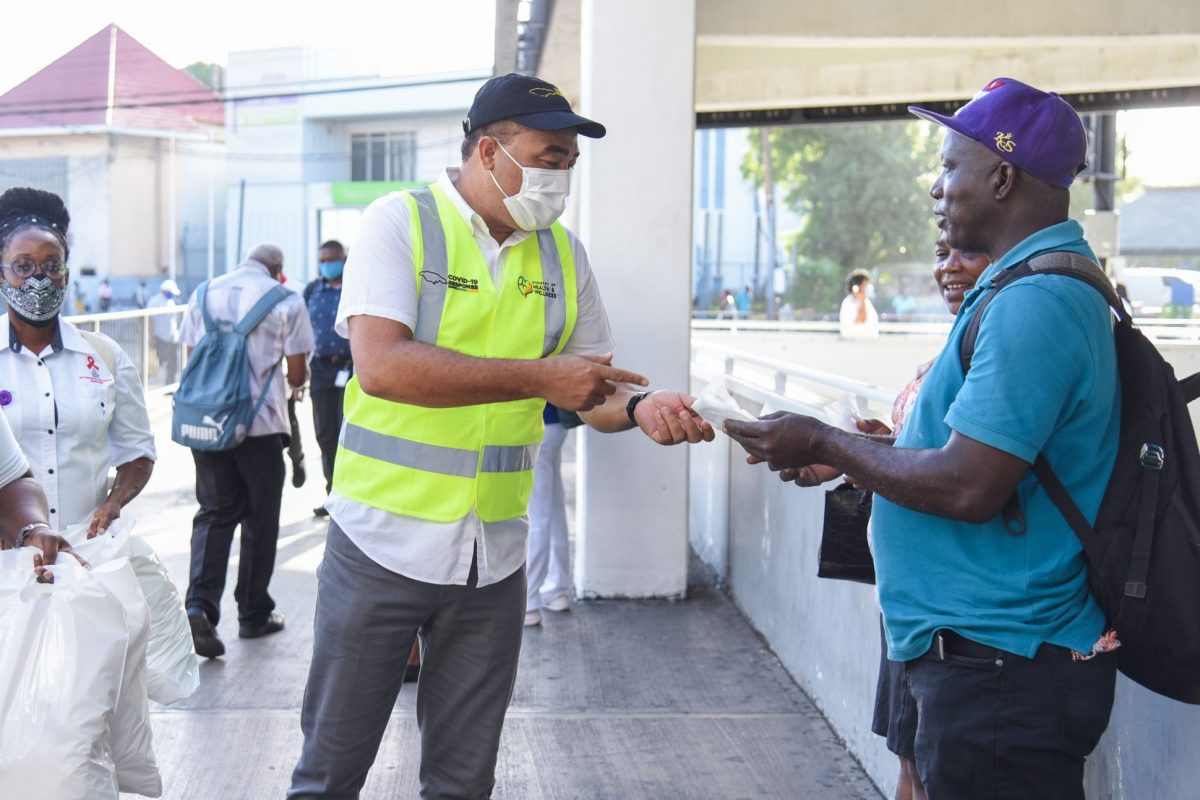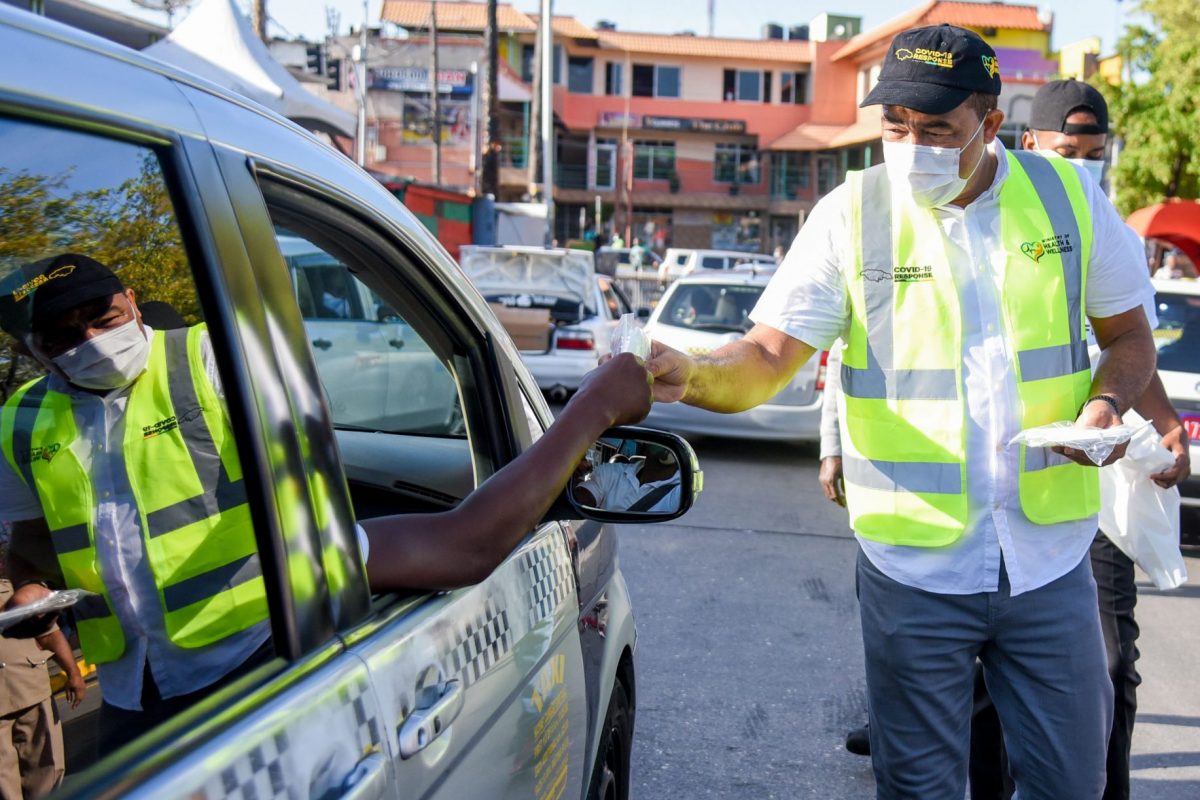(Jamaica Observer) As most Jamaicans returned to their workplaces yesterday, following the expiration of the Government’s work-from-home order that formed part of its COVID-19 arsenal, Health and Wellness Minister Dr Christopher Tufton is cautioning against becoming “complacent”.
Tufton, who yesterday took to the streets in Half-Way-Tree, St Andrew, after six in the morning, armed with 3,000 KN95 masks to gift to individuals without masks and those using public transportation, said the threat of the novel coronavirus remains real.
“Effective today [yesterday], the work-from-home order would have expired. What we anticipate, therefore, is that more persons will be coming out to go to the physical space called work, and as a consequence more will be taking public transport, more would be moving from one place to the next. There is going to be more congregating of persons and the possibility of the virus spreading is going to become increased, and so what we want is a message to the public to say, ‘Please to remember that part of the approach to decreasing the risk of COVID-19 is to wear a mask when you are in public spaces’,” the health minister told members of the media.
“We thought Half-Way-Tree square was a good place to kick this off, and indeed, the regional health authorities across the country have been asked to go into all the main town squares to promote this concept. This is just a part of the overall public education programme, because you are going to see this on television, you are going to see it on social media, but generally speaking, the message to Jamaicans is to wear your mask when you are in public spaces,” he said.

While the Government has indicated that as of June month-end it will no longer be mandating the wearing of masks, and will be relaxing in full its restrictions on gathering, the health minister said the window of remaining days would still be used to encourage the practice.
“Right now we believe the threat of COVID-19 is still very real, we don’t want Jamaicans to be complacent. We don’t know what the future will bring, maybe when there is a vaccine and the risk of COVID-19 is not as great then we won’t have this challenge, but right now it is very important for persons to remain vigilant, and wearing a mask when you are in a crowded area is very, very important… that is what we want to promote,” he said.
In the meantime, the health and wellness minister said while masks are protective, they could prove potentially dangerous. He, therefore, urged individuals to exercise care in its use.
“One of the things we want to encourage Jamaicans in, is the proper wearing of the mask and the care. So this idea of wearing the mask on your chin and on your forehead, it’s important that persons realise that you take the mask off using this [side ties or ear loops], you don’t touch the [face of the] mask, you don’t handle it… because, frankly speaking, a mask can be a double-edged sword. If you don’t use it properly, it could also be a problem for you,” Tufton said.
In noting that it was difficult to maintain physical distance while using public transportation, he said: “That is why the mask is so important, because we understand that, practically speaking, once persons start to move around and people start to congregate and depend on public transport — even with the rules in effect — it is not going to always be possible for persons to observe some of those measures in terms of [staying] six feet apart.
“What we all can do, as an added precaution, is to wear the mask. So the masks, to my mind, is the best defence, plus the hand sanitisers, which we all should travel with. The physical distancing becomes difficult in a number of contexts, but I think there is a lot we can do,” the health minister said.
According to the World Health Organization (WHO), while wearing a medical mask is one of the prevention measures that can limit the spread of certain respiratory viral diseases, including COVID-19, the use of masks alone is insufficient. The organisation says whether or not masks are used, maximum compliance with hand hygiene and other infection prevention control measures is critical to prevent human-to-human transmission of the virus.

